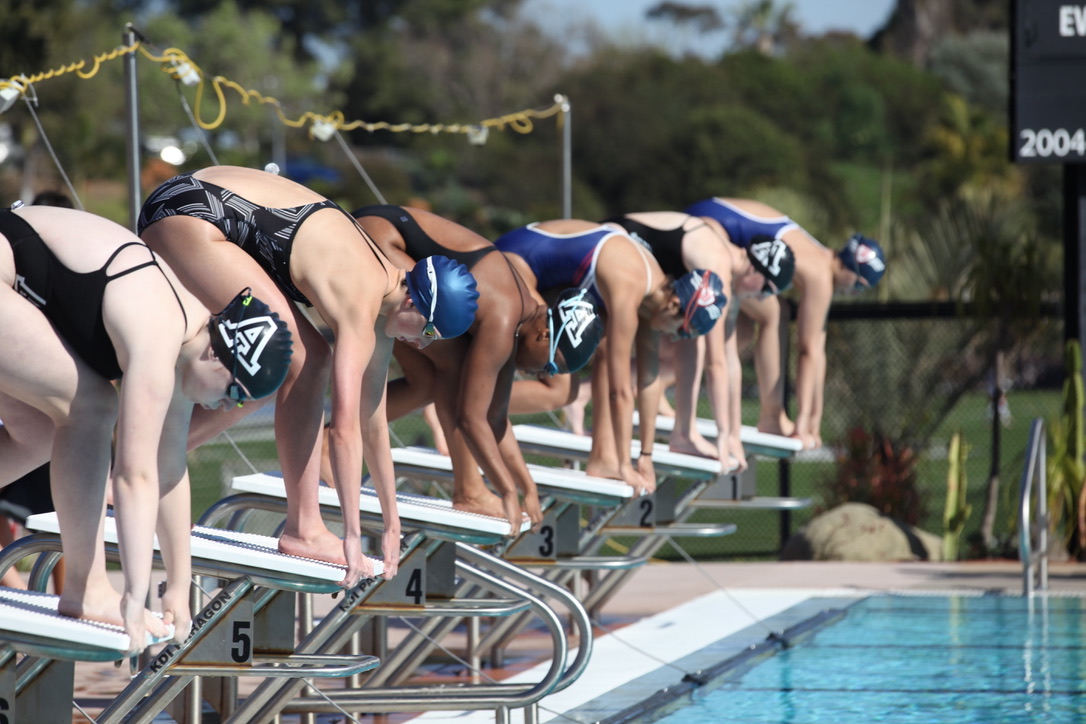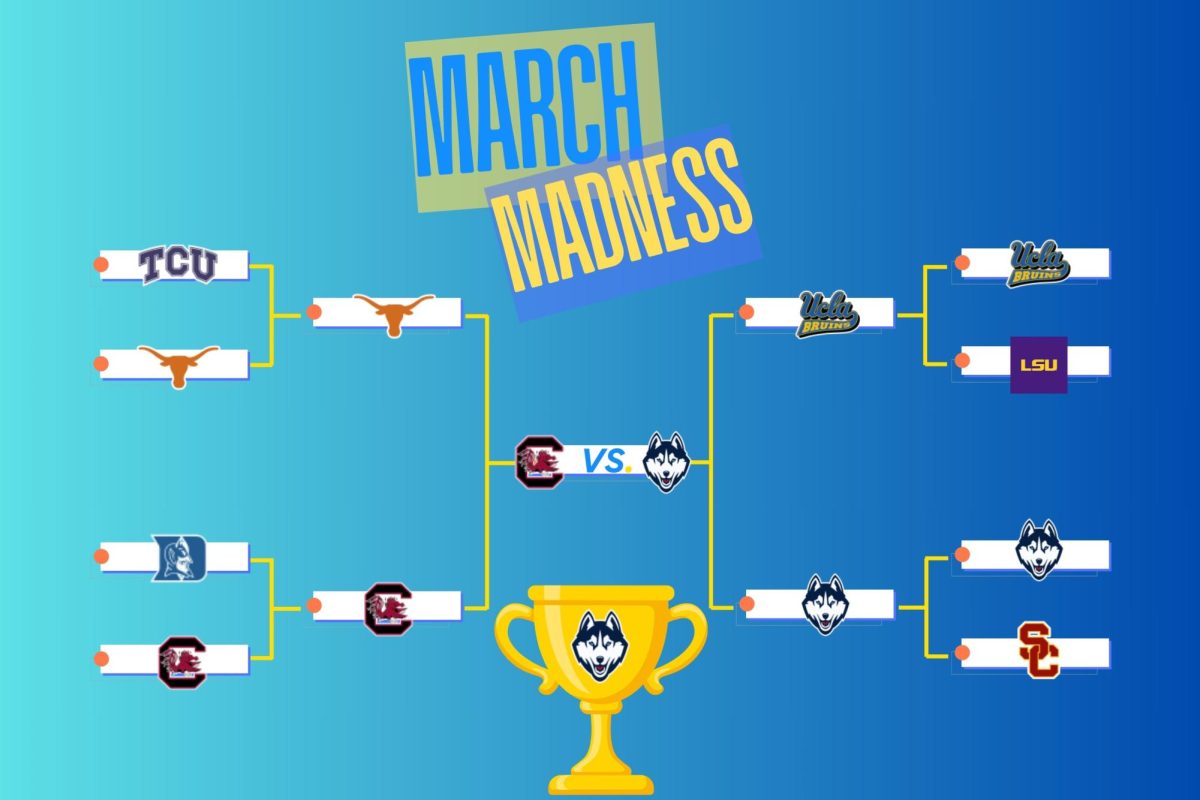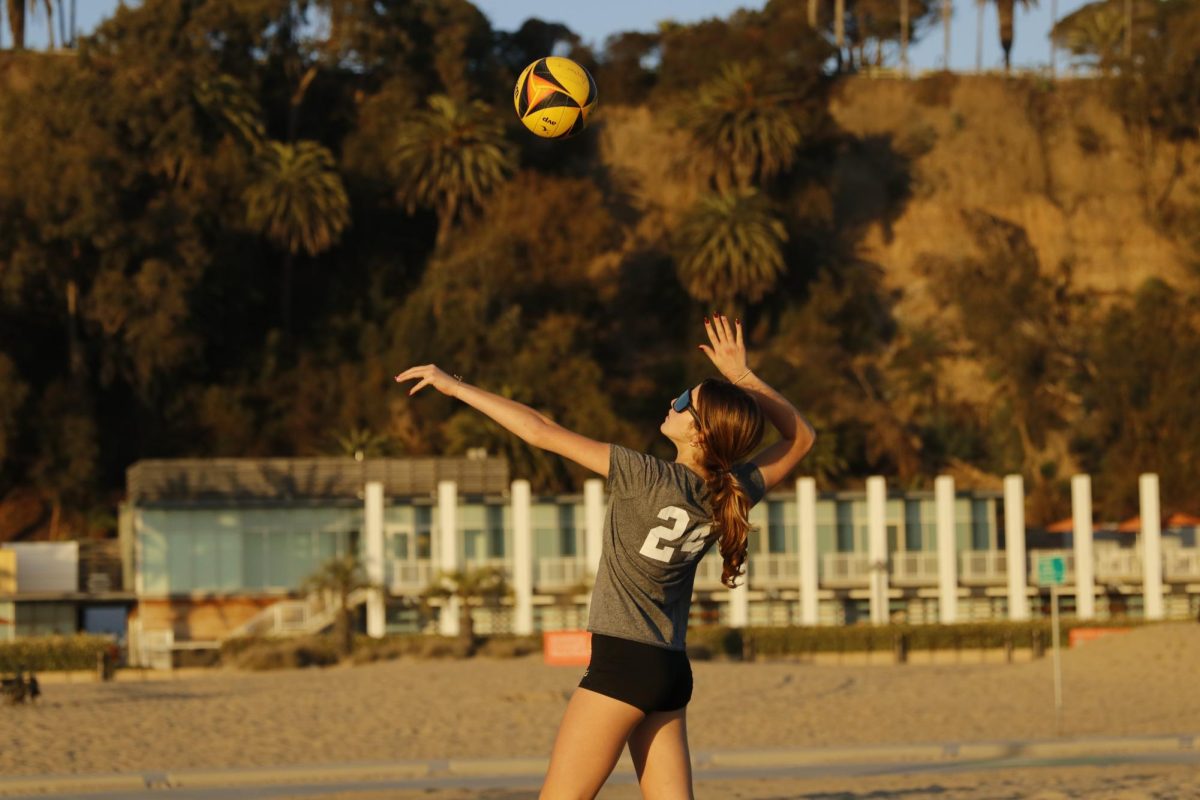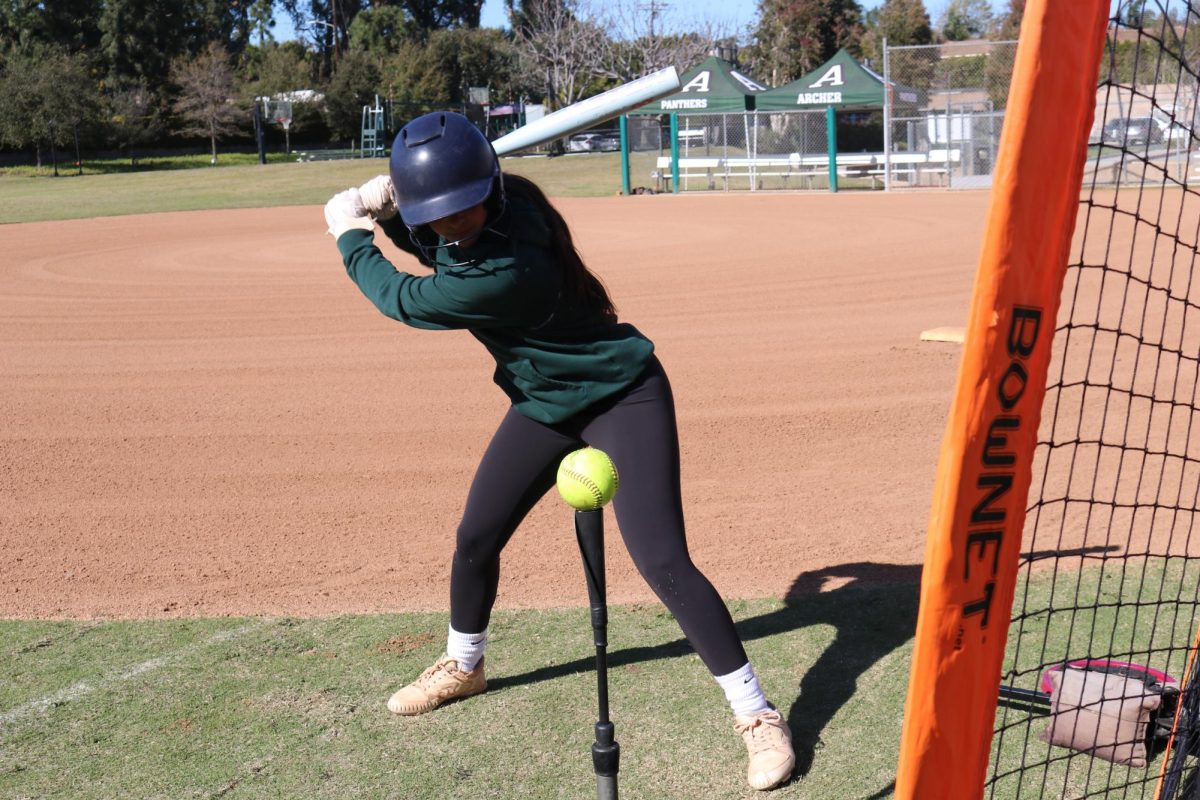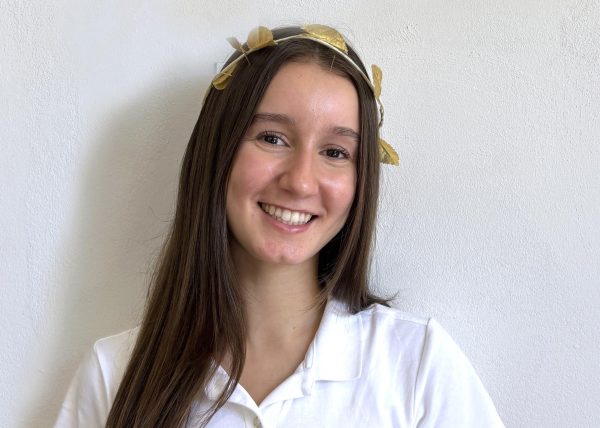Freshman Caroline Muldaur has her prerace routine down to a science. Ten minutes before her race, she eats a pack of fruit snacks to get a boost of sugar before getting in the water to warm up. Then, she gets out of the water and does some jumping jacks to increase her heart rate. Moments before Muldaur dives, she focuses on her race plan — and before she knows it, she’s in the water for her 500-yard freestyle race.
The varsity swim team won both of their meets last week. They competed against Brentwood School and Campbell Hall Tuesday, April 8, and faced Maranatha High School Thursday, April 10. Maya Cerbo (’28), Mia Akkaraju (’28) and Muldaur started swimming competitively in middle school and have continued into their first season on the upper school team. The team consists of 14 athletes, making up one varsity team.
Muldaur said the atmosphere at their meets does not feel as competitive as her club meets. Outside of school, she practices nine times each week with her club team. She prefers the community aspects of being on the school team, even though she feels like she performs better in her club due to its competitiveness.
“The community and togetherness of our school team, our Archer team, is better compared to [my] club,” Muldaur said. “Club sometimes can be a bit toxic because you feel like you’re trying to be the best.”
Although Cerbo loves swimming for Archer, she said she prefers club swimming over school. Because the Archer team is very community-oriented, Cerbo gets worried she will let her teammates down when participating in a relay event. In contrast, club meets feel more individual, she said, though she sometimes still feels pressure to perform well.
“There’s a lot of, ‘You have to do good. You have to drop time.’ And sometimes I overhear some of the parents [say], ‘You have to beat this person.’ Even my mom will sometimes say to me, ‘You need to beat this person on your team. I know you can do it.’ If I don’t end up doing it, she’ll be like, ‘It’s okay, you’re better than this person in other races,'” Cerbo said. “School [swim] is like, ‘We can do this, [and if] something goes wrong, it’s okay. We have another chance.'”
Akkaraju does not swim outside of school. She said the sport is generally stressful because there are many ways you can be disqualified from a race, especially in an unusual environment like a pool. Athletes can be disqualified from a race for a number of reasons, including if they are not using both hands to touch the wall when they finish certain strokes or if they dive in before the previous person in a relay race touches the wall.
“It’s very different from basketball or track because we’re constantly on land, and so then the water, it’s different— it’s sort of unpredictable and you have to really know what you’re doing,” Akkaraju said.
Archer offers four practices each week for athletes to attend — two of them are in the morning before school starts. Muldaur said although it can be difficult to juggle swim practices with schoolwork and extra-curricular activities, she finds it peaceful.
“But [swim practice is] also like a very like calm place,” Muldaur said. “You have a lot of time to think and [it is] a great way to escape that.”



